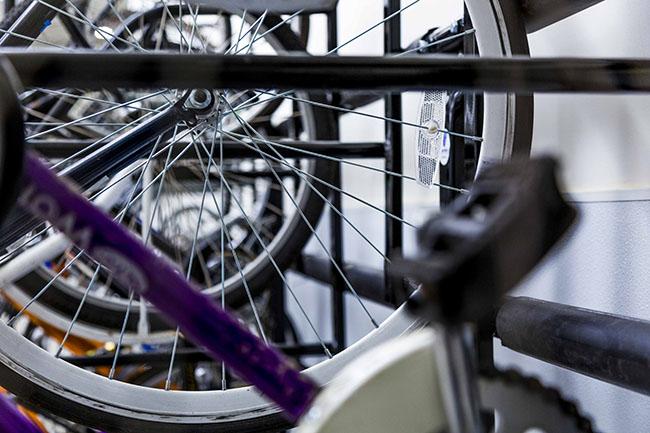Turning Violet into Green: 9 Sustainability Efforts from the NYU Community
Since its inception in 2007, NYU’s office of Sustainability has worked hard towards making NYU a greener school, and one of the many projects put in place is the Bikeshare program, which over 5,000 members of the NYU community participate in.
April 26, 2016
Since NYU’s Office of Sustainability was founded in 2007, the university has made understanding and promoting sustainability key priorities. Here are the top 9 things members of the NYU community are doing to create a greener campus.
Recycling and Composting
Starting in 2009, NYU has run a mixed recycling system that accepts plastics, glass, metals and paper in one bin. In 2010, the university began setting up compost bins in dining halls and in Law School residences and it continues to expand and improve this initiative each year.
Of NYU’s landfill waste, about 60 percent is compostable and 28 percent is recyclable, meaning that landfill waste could be potentially reduced to just seven percent.
Founded byStern senior Samir Goel and Gallatin senior Hannah Dehradunwala, Transfernation aims to collect extra food from corporate events, restaurants and supermarkets to be donated to food kitchens. Currently, Dehradunwala and Goel are turning operations over to the Trasnfernation app, which sends notifications to its users when there are pickups near their locations.
“We want to change the way that people view their extra food and promote a conscientiousness around the amount of food that we waste,” Dehradunwala said.
Center for Sustainable Business at Stern
In February, Stern received a $1 million donation from Citi Foundation to launch the Center for Sustainable Business. So far, the Center has hosted a panel on Big Data for Sustainable Development, a fireside chat with a Nespresso executive and a jobs fair at Vice Media. In the fall, the center will roll out an undergraduate course called “Sustainability for Competitive Advantage” and conduct research reports on new financing mechanisms for sustainability.
Bikeshare
The bike-share program, which was funded through Green Grants and began in 2010, offers free daily bike rentals for students and faculty. Bikes can be checked out of 14 different NYU buildings. Currently, about 5,000 members of the NYU community are signed up for the program, up from 3,000 just 18 months ago.
CoGen
In 2011, this 13.4-megawatt natural gas fired power plant went into operation. Sitting under Warren Weaver Hall, it supplies 26 buildings with electricity and 40 with hot water, heating and cooling. It is estimated that CoGen save the university $5-8 million per year. CoGen alleviates some of NYU’s reliance on the city’s power-grid, using the relatively clean energy source of natural gas. During Hurricane Sandy, the plant kept important buildings of the Washington Square campus operating.
NYC Mayor’s Carbon Challenge
NYU, along with 17 other universities, accepted the city’s carbon challenge in 2007, pledging to reduce greenhouse gas emissions by 30 percent over a 10-year period. The university reached this goal six years early in 2012. As of last year, NYU is committed to reducing emissions by 50 percent from 2006 levels by 2025.
NYU Urban Farm Lab
The Urban Farm Lab, which ran from 2013 to 2015, was a farm ran by Steinhardt Food Studies faculty and was located between Houston Street and Silver Towers. It supported urban agriculture courses, volunteers, tenant gardening and research. The Farm Lab has been temporarily closed due to window replacements at Silver Towers.
“This urban agriculture project was extremely successful, engaging a large number of faculty and students,” said Office of Sustainability Manager, Nick Gordon.
Reusable and Compostable Take-Out Containers at the Dining Halls
The containers that students use for take-out at the dining halls are made of compostable material. In addition, NYU dining halls such as Hayden Residence Hall started selling reusable plastic take-out containers last October.
NYU Unplugged
Each February, NYU dorms compete in a competition to see which dorm could reduce it energy usage the most. Each hall’s total consumption was measured by a smart metering system and was then compared to past usage. This year, Hayden won with 264 points and Carlyle Court Residence Hall came in second with 170 points.
Email Kyle Sturmann at [email protected]












































































































































